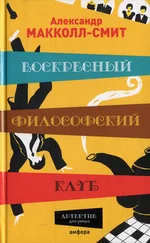Mma Ramotswe had intended to take Mma Makutsi with her on her next visit to the Sengupta house but Mma Makutsi had excused herself from the office and was unable to come.
‘I have to go to the café,’ she said. ‘I have had a telephone call.’
Mma Ramotswe had heard her answer her telephone but had not been able to work out what the call was about – Mma Makutsi had lowered her voice and cupped her hand round the receiver.
‘I hope everything is all right, Mma.’
Mma Makutsi, gathering her things and stuffing them into the shoulder bag she liked to carry, was non-committal. ‘There are always things happening in a business,’ she said.
‘Not bad things, I hope,’ said Mma Ramotswe.
Mma Makutsi half turned round, but obviously thought better of pursuing the conversation. ‘I shall see,’ she said. ‘I’m sure that everything will be fine.’
Mma Ramotswe lowered her eyes. She had decided that she would tell Mma Makutsi what she had heard from Mma Potokwani, but wanted to wait a while before she did so. It was possible that things might work out, and she did not want to sound negative; she was only too aware of Mma Makutsi’s sensitive nature. To that list of institutions in the Makutsi pantheon of which seemingly innocuous discussion could cause a slight, there now had to be added the Handsome Man’s De Luxe Café.
‘If you need anything,’ muttered Mma Ramotswe, ‘never hesitate to ask, Mma.’
Mma Makutsi was tight-lipped. ‘I’m sure that everything will be perfectly all right, Mma,’ she said. ‘But thank you, anyway.’
Mma Ramotswe judged the moment right for a further remark. ‘If I had a business that was getting into trouble, then I would go straight to my friends and discuss it with them. I would not suffer in silence, Mma.’
Mma Makutsi hesitated again, but then nodded politely and left the office.
Now, turning into the Senguptas’ road in the newly repaired tiny white van, Mma Ramotswe thought of the encounter ahead. It would not be easy, she felt, and it would have been good to have Mma Makutsi there to support her, but that was not to be. She would take a deep breath and say what she had to say: she could do nothing but that.
Miss Rose answered the intercom and bade the electric gate slide open for her. Mma Ramotswe was careful; it would not do to sustain yet another dent in the bodywork of the van. Sooner or later, Mr J. L. B. Matekoni had hinted, vehicles just fell to bits if you bumped into too many things in them.
Miss Rose greeted her warmly. ‘I am very pleased that you came, Mma,’ she said. ‘We have been wondering about how things were going. You have news for us, is it?’
Is it? It was what people said – a general question mark that they added at the end of any enquiry.
‘I have some news and then I… then I have no news.’
Miss Rose raised an eyebrow. ‘That is very good, Mma… or maybe not?’ She ushered Mma Ramotswe into the formal sitting room. Mma Ramotswe sat down gingerly on one of the large ornate armchairs, almost reluctant to lower herself onto the gold-coloured upholstery. Miss Rose seemed to pick up on her hesitation and was quick to reassure her. ‘Make yourself comfortable, Mma. Do not worry about the chairs. They are meant to be sat upon.’
Mma Ramotswe managed an embarrassed smile. ‘These chairs would not be out of place in Buckingham Palace,’ she said. ‘They will have many chairs like this at the Queen’s place. She will always be sitting on chairs like this.’
Miss Rose was pleased with the compliment. ‘It is good to think that the Queen would feel at home if she dropped in.’
‘Yes, she would like these chairs.’
There was a short silence that was broken by the sound of somebody approaching along a corridor.
‘That will be Mrs,’ said Miss Rose. ‘She must have heard you arrive.’
Mrs came into the room. Her eyes went straight to Mma Ramotswe, and for a moment anxiety passed across her face. It was soon replaced, though, by a guarded smile of welcome.
Mma Ramotswe looked at Mrs. ‘How are you, Lakshmi?’
The other woman began to answer. ‘I am very well, thank you, Mma. I am…’ And then she became silent. Now she looked sharply at Miss Rose.
‘Why did you call her that?’ asked Miss Rose. ‘Have you found out what her name is?’
‘I think you know that already,’ said Mma Ramotswe. ‘I think both of you know it.’
‘She does not,’ said Miss Rose. ‘She does not know who she is.’
Lakshmi sat down heavily on the chair nearest her. ‘See,’ she said. ‘She knows. This lady knows.’
Miss Rose turned to her quickly. ‘You cannot say that. She knows nothing. You know nothing either. You don’t even know who you are. Remember?’
‘She is called Lakshmi,’ said Mma Ramotswe evenly. ‘And I must tell you that I know what happened.’
Miss Rose eyed her suspiciously. ‘How can you know that? You are just telling us that – it’s not true.’
‘It is true,’ countered Mma Ramotswe. ‘Lakshmi is from over the border – that way.’ She waved an arm towards South Africa. ‘She had a very bad husband who beat her. She tried to defend herself and he went to the police. He had a corrupt policeman charge her with attempted murder.’ She paused, watching the effect of her words. ‘That is why she is here. She is running away.’
Lakshmi now spoke. ‘You see, Rosie? You see. It’s all over now.’
‘It is not over,’ snapped Miss Rose. ‘You have no proof of all this, Mma. We shall just say that it is all lies.’
‘But it is the truth, Mma. I do not like to lie.’ She put her hands together and then opened them, palms upward, in a gesture of openness.
Miss Rose closed her eyes, as if to shut out the obvious. She drew a deep breath. ‘You don’t know what it’s like, Mma Ramotswe…’
Mma Ramotswe did not let her finish. ‘But I do, Mma.’
Both women looked at her.
Mma Ramotswe held their gaze. She did not like to talk about this; she never mentioned it, in fact, because it was something very personal, and painful too. But now she felt that she had to.
‘When I was young I married a man called Note Mokoti,’ she said. ‘My father did not want me to marry him – I could tell that – but you know how it is when you are young: you think that you know better than everybody else. So I ignored him when he said that he thought that Note would not be a good husband for me and that he could not be trusted. I think he knew, too, that he would be violent, but he did not want to spell that out to me.’
They were silent.
‘I think that you may know what I’m talking about, Lakshmi.’
Lakshmi did not say anything, but the slight movement of her head showed her agreement. She knew very well.
‘I went ahead and married Note, although it must have broken my daddy’s heart. And then, shortly after we were married, he began to hurt me. He began to hurt me in many ways – in my heart and in my body. He struck me with a belt. He made me cry and cry and that only seemed to give him more pleasure. He taunted me for being too weak to stand up to him.
‘I thought: I must run away from this man. I thought that, but there is a big difference between thinking something and being able to do anything about it. Sometimes it is difficult for women to get away, even though they know they must…’
Lakshmi nodded vigorously. ‘Yes, Mma. Yes. That is exactly right.’
Mma Ramotswe continued with her story. ‘At last I got back to my father and he never said anything like I told you . He said nothing like that; he took me back and the nightmare was over.’
‘Yes,’ muttered Lakshmi. ‘It is like a nightmare. It is just like that.’
Читать дальше







![Александр Макколл Смит - Отдел деликатных расследований [litres]](/books/397661/aleksandr-makkoll-smit-otdel-delikatnyh-rassledova-thumb.webp)




